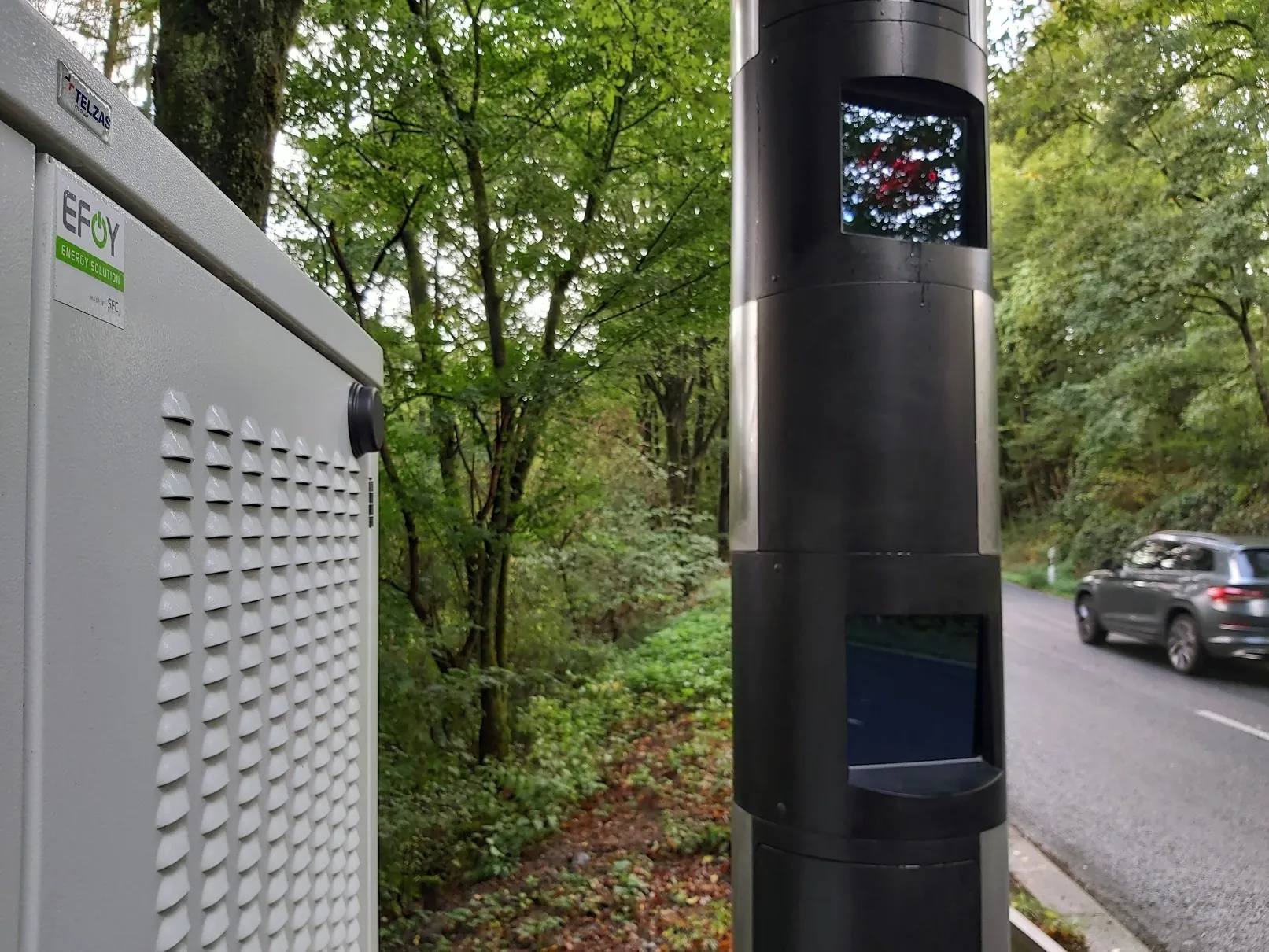SFC Energy has received a follow up order from Volkswagen Commercial Vehicles for equipping another 242 toll inspection vehicles, based on the T5 vehicle model, ordered by the German Federal Office for Goods (BAG). with EFOY Pro fuel cell generators. The BAG uses the vehicles all across Germany for toll inspection purposes. Volkswagen equips the T5 transporters ‘ex works’ with the fuel cells.
June 28, 2012
Read time: 2 mins
The EFOY Pro fuel cell is a convenient, lightweight power generator. It produces power for the electric measuring and surveillance devices and the office equipment on board the vehicle, fully automatically and without generating any noise or emissions. As the devices are operated continuously for eight or more hours per day, batteries alone cannot supply enough power.
”The EFOY Pro fuel cell generator offers decisive logistical advantages to our toll inspection teams”, explains Ralf Mülhausen, BAG fleet manager. “Before, they had to connect their vehicle to the grid for recharging their batteries, or they had to idle the vehicle’s engine for a considerable amount of time, generating noise and emissions. Now they do not have to worry about power any more, the energy from the fuel cell is as silent and convenient as energy from the grid. At the same time we are significantly reducing our fleet costs and increasing our operational readiness. “
“The EFOY Pro fuel cell generator has been a success in the BAG fleet vehicles since 2009“, says Lutz Winter, key account manager at Volkswagen Commercial Vehicles. “The technology has convinced us – once installed on board, the fuel cell generates power on demand without requiring any user intervention. You don’t hear or smell anything; you do not have to switch the device on or off. Except for a fuel cartridge exchange every three to four weeks there is nothing you have to do. For our teams, who spend many hours in the vehicle every day, this is a major improvement.”








